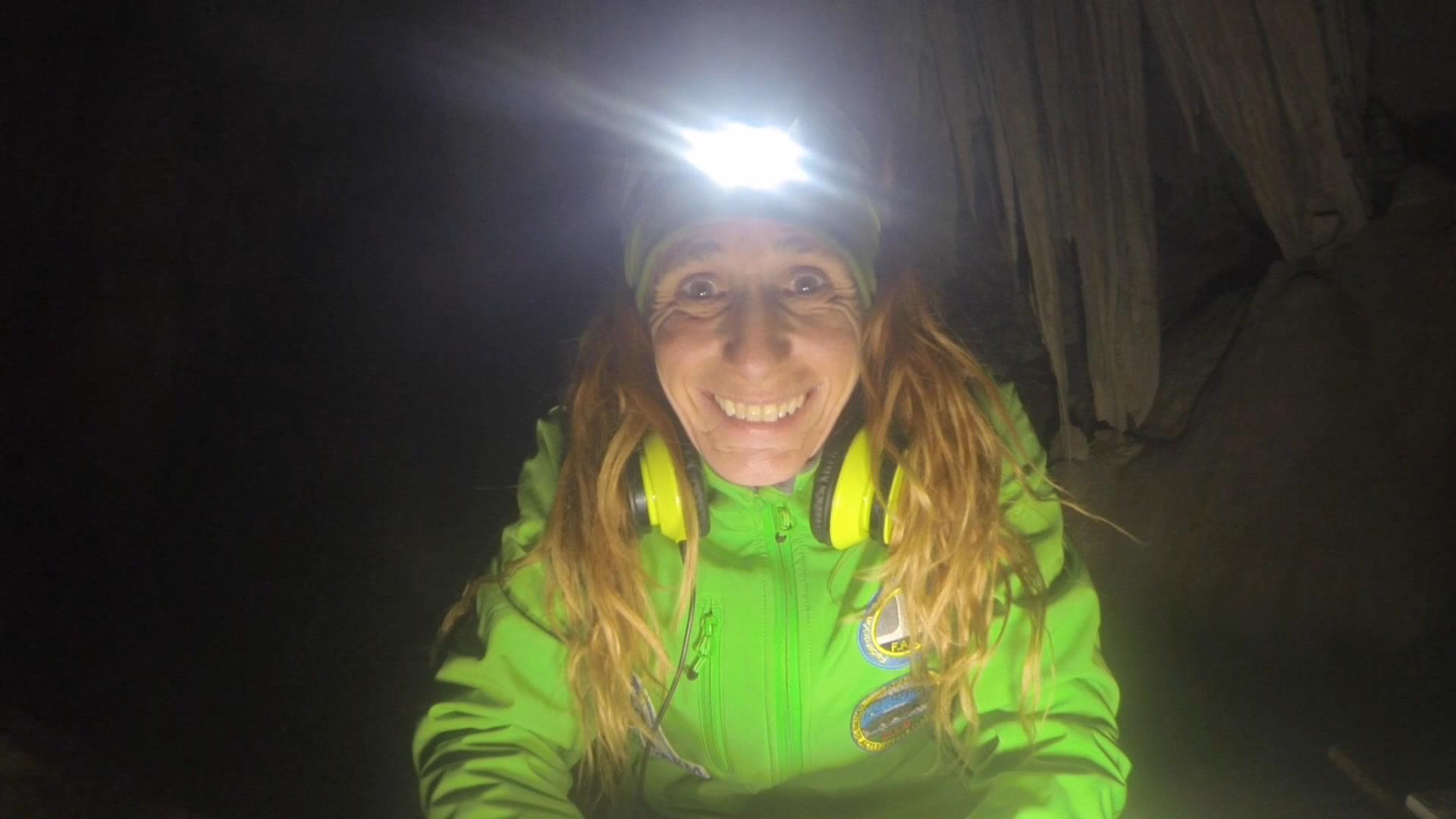Reaction: A sportswoman ends her voluntary isolation in a cave in Granada after 500 days
A sportswoman named Beatriz Flamini has today emerged from a cave in the province of Granada, Spain, where she voluntarily isolated herself 70 metres deep for 500 days, without any contact with the outside world. This is a self-improvement project that was followed by a documentary production team. The initiative involves researchers in experimental psychology and behavioural physiology from the University of Granada, in clinical neuropsychology from the University of Almería, as well as from Kronohealth, a spin-off company of the University of Murcia's Chronobiology laboratory.
Amended to clarify Till Roenneberg's statement.

Beatriz Flamini, inside the cave where she lived during 500 days. EFE/Dokumalia.
Till Roenneberg - señora cueva EN
Till Roenneberg
Chronobiologist and Sleep Researcher at the LMU Munich, Germany
The most important thing is that the study includes a limited set of clear research questions, otherwise the protocol will get messy and you won't get answers. What do we measure? How do we measure it? This is what makes it a useful experiment or not. Everything else is PR and show business, and that's why we have to be careful.
The fact that the experiment only involves one person doesn't necessarily make it unscientific. Many long-term experiments include individuals, such as those carried out by Harvard researchers, that put people in very defined, constant conditions. We can gather some information from a well-designed experiment with one person, although an even more valuable design would follow 20 people over time so we can make a statistical analysis.
There can be good sides to such experiments. The BBC once carried out a biological clock experiment, with input from chronobiology researcher Debra Skene from the University of Surrey, sending a person for ten days in a bunker for a documentary film. It was not highly scientific, but it gave viewers an insight into the circadian rhythm and the role of the light/dark cycle, so it had some value in pointing the public towards an important biological issue.
